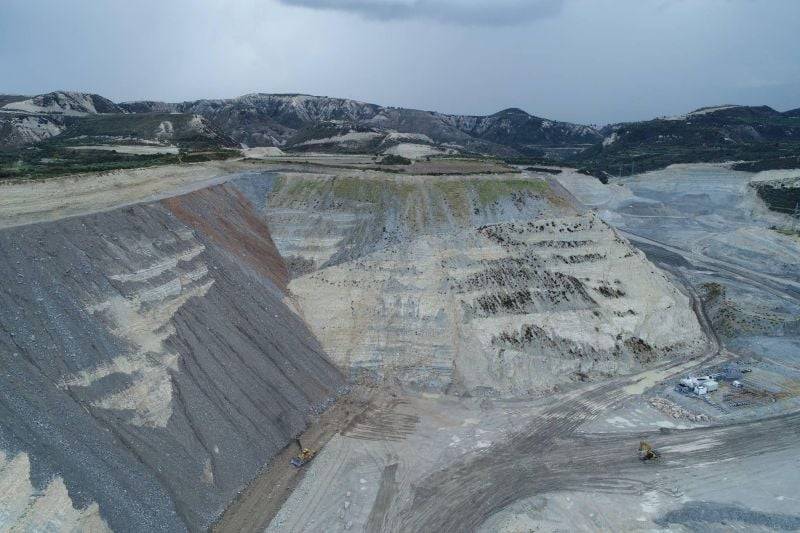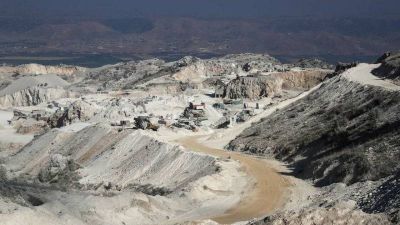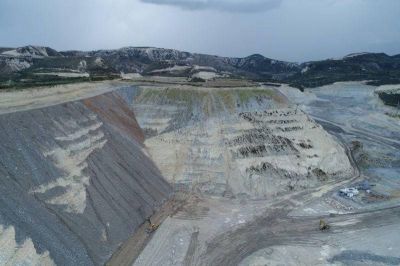
A quarry in Chekka, North Lebanon. (Credit: L'Orient-Le Jour)
BEIRUT —Lebanon's caretaker Environment Minister Nasser Yassin, along with officials from various government agencies, announced on Friday an action plan to recover $2.4 billion in unpaid dues from quarrying operators, according to a statement released by his ministry following a press conference in Beirut.
These unpaid dues are primarily related to uncollected taxes for quarrying operations, costs associated with environmental damage compensation and fines imposed for the use of illegal sites, according to the statement.
In December 2022, when launching this debt recovery project, Yassin specified to L'Orient-Le Jour that it was targeting at least 1,235 illegal quarries that operated between 2007 and 2021, covering an area of 15.15 million square meters.
 Caretaker Lebanese Environment Minister Nasser Yassin (fourth from the left), and representatives of the Lebanese government during a press conference in Beirut on Sept. 22, 2023. (Credit: NNA)
Caretaker Lebanese Environment Minister Nasser Yassin (fourth from the left), and representatives of the Lebanese government during a press conference in Beirut on Sept. 22, 2023. (Credit: NNA)
During the press conference attended by the head of the State Litigation Authority, Helene Iskandar, the president of the Court of Accounts, Mohamad Badran, and representatives from the army and the ministries of Finance, Interior and Justice, the environment minister stated that the sum of unpaid dues owed by the sector to the Treasury had been estimated, according to a study prepared by his ministry and the United Nations Development Programme (UNDP), at more than $2.4 billion.
The Lebanese landscape is marred by numerous quarries, most of which are operated without the legally required permits issued by the High Council of Quarries under Decree 8803/2002.
When quarries are operated without proper permits, their owners do not pay their dues according to the criteria of the appropriate legislation, do not adhere to any limits imposed by the relevant authority and do not cover the costs of rehabilitating the degraded land, in contravention of legal provisions.
The profits they make from the sale of raw materials benefit only themselves, and the country suffers environmental degradation as a result.
Collection and seizures
The unpaid dues will have to be settled by the violators and operators in "fresh" US dollars — as opposed to dollar-denominated funds held in banks since before the onset of the financial crisis in 2019 — either in cash or through a bank transfer in fresh US dollars to a special account denominated in this currency at Banque du Liban. If these payments are not made within two months following the payment order, property, both movable and immovable, belonging to the owners and operators may be seized and sold by the state.
The various stakeholders further explained that funds would be collected through the Finance Ministry for expenses related to sums connected with the organization of the sector, while the Environment Ministry would be responsible for recovering the amounts imposed for environmental damage compensation.
These fees will be collected from the owners of the relevant sites and their operators.
In December of last year, Yassin explained that the sums the state aims to recover could be used to better organize the quarrying sector in cooperation with the Lebanese army.

